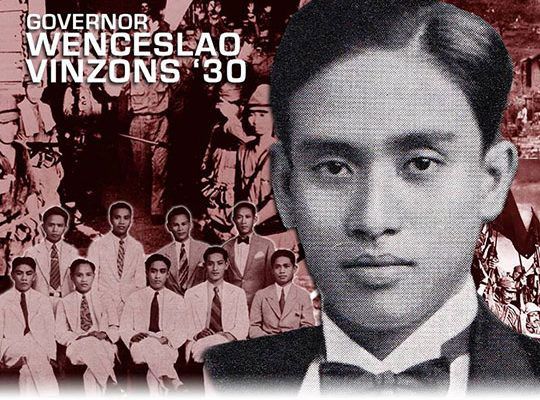Opinion
The Leader as Upsilonian by Chet Tan '63


The Leader as Upsilonian
by Chet Tan '63
A leader, it is said, is a product not fully of his own time. Conceived by destiny and sired by great events, he is also the quintessence of tradition.
In a sense, a leader is born. But there are also others who, at a precise moment in time, are catapulted to prominence on the crest of an inexorable pulsebeat of history. To them, the mandate to lead is an interplay between historic opportunity and availability at the right time and at the right place.
Yet, what dazzles is the leader who, equipped with the legacy of enduring values, eases himself to the point of inevitable choice by the masses. It is he who shapes the main currents of national upheaval and leads the people to his doorstep. And once enthroned, he summons his reservoir of character and principle in the service of the nation.
The Upsilon has a tradition of leadership. It is a tradition that is backed up by the prominence of its members in various positions of leadership. Such prominence may be an accident of time and circumstance, but precisely those bright moments are the inertia generated by a passion to excel, past, present and future.
Ultimately however, what is important to us is not how we measure the Upsilonian as leader but the leader as Upsilonian. In the first proposition, the Upsilonian is incidental. The criteria by which he is judged as a leader are the universal attributes of leadership. In the second proposition, it is the leader who is judged by his roots as an Upsilonian, by criteria that reflect the longings and aspirations of the fraternity. These criteria are meaningful and almost inviolate.
Thus, the leader as Upsilonian stands on the pinnacle of power propped by his past. He listens to its whispers and its counsel because they are there. Any other leader who has no need to reflect on what he has none, save for the challenges of the present.
The leader as Upsilonian is inspired, according to the credo, by the spirit of "self-negation for the greater good." It is a spirit that democratizes his relationship with his brothers, beyond personal preference or advantage. He answers earnestly the call of selflessness.
Against the influences that are destroying him from within his own circle, he can, to paraphrase Kipling, make one heap of his winnings, risk it in one toss of the dice, start all over again and never breathe a word of his loss. He is capable of transformation at the behest of his own conscience.
He is an upright man, equal to the task of moral leadership. He has the capacity for anger and, as in biblical times, is not reluctant to drive away the evildoers from the steps of the temple. He is a dreamer and pursues his dream with vigor for a just and peaceful society.
But most of all, he seeks no accolade on earth but a secure place in the hearts of his brothers and countrymen.
This article first appeared in The Upsilon Sun in September of 1985. Ancheta K. Tan '63 was a former illustrious fellow and editor in chief of the Philippine Collegian from 1965-66; he is a lawyer by profession and was selected as one of the top 100 lawyers of the Philippines by the Asia Business Law Journal in 2019.


